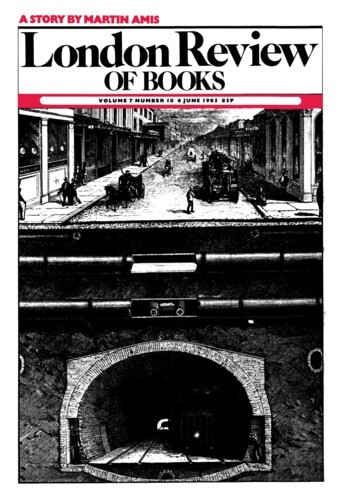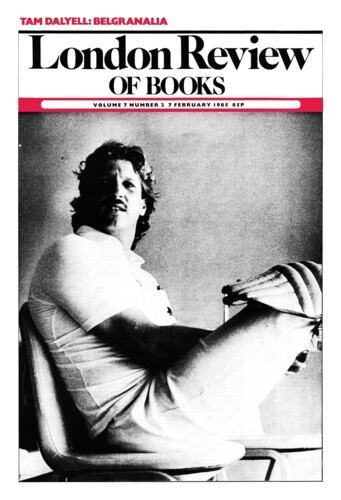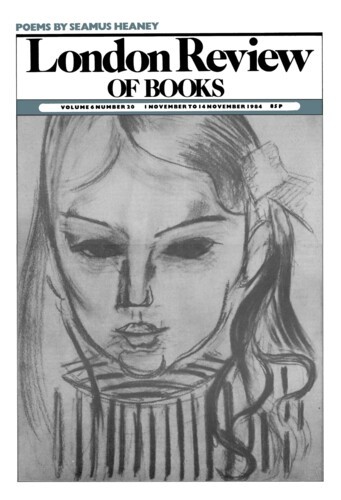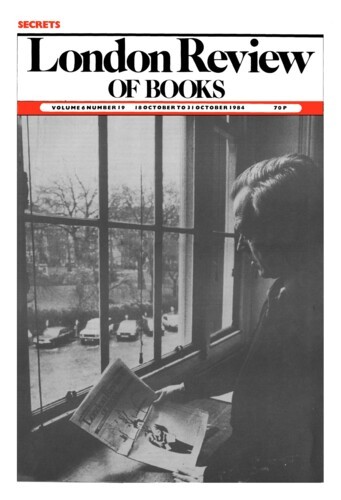Chronicities
Christopher Ricks, 21 November 1985
A.N. Wilson is something of an anachronism, and it was timely of him to make anachronism the nub of his new novel about the old days, Gentlemen in England. The title itself, in the England of 1985 where the new right spits even more zealously than the old left on the grave of the gentlemanly ideal, pushes anachronism and dislocation to the point of oxymoron. Gentlemen in England: there has not been so incredulous a title since A Chaste Maid in Cheapside. But then the title precipitates a fourfold chronicity: this novel, to be read in 1985, is set in the England of 1880, recalling a writer who in 1599 recalled the events of 1415:





